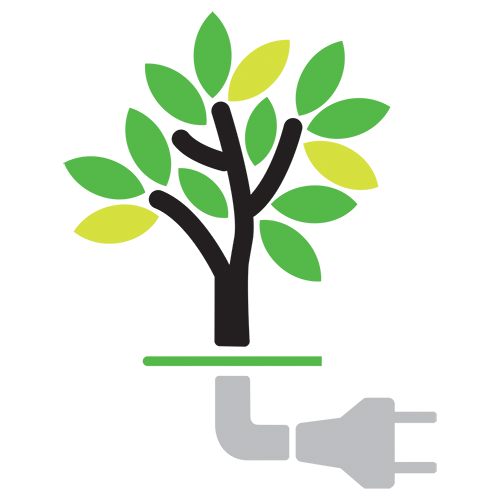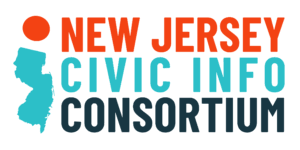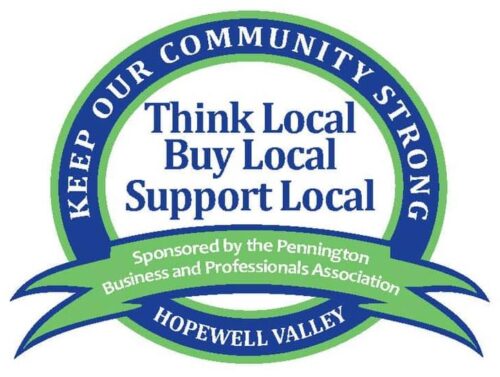Earlier this week, Coco and I were on our morning stroll through St. Michaels Preserve in Hopewell Borough. It is a rare day that we don’t feel the pulse of the earth, the breath from the trees, and the energy from the flora and fauna around us. There is something primal, centering and grounding about our walks through these woods. I feel fortunate for the peace that is so easily within reach.
And yet, all too often, I find that my magical mornings give way to the cacophony of modern life where the hustle and bustle of the world beats relentlessly. It occurs to me that from dawn till dusk, so many of us navigate through a maze of technology, deadlines, and societal expectations and in the process, we lose the essence of ourselves. Amidst the conveniences and advancements of modern living, I am witnessing that a vast majority of us are struggling to find equilibrium, despite our efforts otherwise.
Our species has evolved over millions of years, honing skills and instincts suited for survival in the wild, often in environments of scarcity. Our evolutionary biology hasn’t had the chance to catch up with the rapid pace of industrial advancement. As a result, we find ourselves stuck in a modern paradox – living in a world designed for comfort, efficiency and productivity, yet often ill-at-ease for reasons sometimes unbeknownst to us.
Our modern relationship with technology, for instance, embodies this paradox perfectly. While smartphones, computers, the internet and social media have revolutionized communication and access to information, they’ve also tethered us to screens, disrupting natural sleep patterns and fostering sedentary lifestyles. The constant influx of notifications and digital stimuli overwhelms our senses, leading to heightened levels of stress and anxiety. As Dr. Anna Lembke describes in Dopamine Nation: Finding Balance in the Age of Indulgence, such abundance actually causes a neurobiological response where dopamine (the neurotransmitter essential for pleasure, motivation, and learning) becomes down-regulated or less responsive. This down-regulation upsets the delicate balance of the other hormones that moderate mood and emotion. The ultimate effect is that it takes more and more to make us feel pleasure and much, much less for us to feel pain. Ever tried taking the phone away from your teen? There is an underlying neurobiological reason for their panic, outrage and anxiety. It is not just about missing the content and communication with friends, but a real neurochemical deficit in anything else being able to bring satisfaction until their device is returned or until they are able to rebalance their dopamine response systems.
And for those high-performing adults who believe that ‘positive stress’ gives a needed ‘edge’? That ‘eustress’ or heightened energy can move us forward in the moment, but when that cortisol spike is combined with other external factors, the body can’t differentiate between beneficial or harmful stressors. We then normalize and learn to live with the classic signs of neural-hormonal imbalance — constant chatter in mind, rumination, the inability to be still, impatience, knee-jerk reactions, and poor sleep (to name a few). Our attempts to self-remedy with nightly drinks, sleep aids, gummies, binge eating, etc., further complicate the body’s ability to find balance, leading to risks of chronic disease.
Given these biological mechanisms, it’s no wonder that so many of us grapple with feelings of stress, distraction, and dissatisfaction, despite our best efforts. These struggles are a wake-up call – highlighting the mismatch between our biological needs and the demands of modern life, prompting a necessary reevaluation of our priorities and habits.
But there is hope (despite how your dopamine-down-regulated-self might feel otherwise!) We live in a glorious time, full of tremendous possibilities and ripe with opportunities for optimizing our physical and mental well-being. Understanding the inherent biological mechanisms and learning how to counterbalance external influences is key to restoring health and wellness, regardless of our current circumstances.
The Vagus Nerve: A Key to Health and Well-being
Enter the Vagus Nerve — the linchpin of mind-body-spirit health. This bundle of nerve fibers is the longest in the body, serving as the communication superhighway between the brain and organs. It plays a vital role in keeping the body in balance, regulating functions like digestion, heart rate, sleep, and the immune and stress responses. The Vagus Nerve is like the conductor of a symphony, orchestrating a harmonious balance between different bodily systems.
One of the Vagus Nerve’s main roles is to engage the body’s “rest, digest, and recover” response, which counters the mental and physical stress of daily life. By keeping the Vagus Nerve healthy and active, you can support the body’s ability to react, recover, and maintain a balanced immune system. Research also shows that stimulating the vagus nerve can alleviate symptoms of depression and anxiety, offering a more natural approach to mental wellness.
There are a number of ways to engage the vagus nerve:
- Deep breathing (such as the ‘box breathing, or the Wim Hof method), meditation, eye stretches, and yoga can help stimulate the vagus nerve, promoting relaxation and reducing anxiety.
- Massage therapy and acupressure point stimulation, either self-administered or with a licensed practitioner
- Singing, humming, and chanting and other vocal activities massage the muscles around the vagus nerve and emit vibration. Laughter is similar and has the added benefit of releasing the ‘feel good hormones’ such as endorphins, serotonin and oxytocin, all while decreasing cortisol.
- Cold Exposure: cold showers, cold plunges, cold-water face immersion for brief periods of time activates the mammalian diving reflex that stimulates the vagus nerve and positively affects brain and body health
- Electro-stimulation technologies that use mild electrical current to gently mimic and re-charge the pathways of the vagus nerve; particularly helpful for those who are unable to access other methods of engaging the vagus nerve
While some of these methods do not always provide the immediate fix that modern humans have come to crave or require, ongoing practices create a cumulative effect that have been shown to alleviate the need for more intense, long-term interventions that often come with unintended side effects.
Achieving balance, or ‘homeostasis’, involves consciously harmonizing the demands of modern life with our biological reality. Millions of years have endowed us with innate resilience and adaptability. By acknowledging our evolutionary heritage and honoring the rhythms of our bodies and minds, perhaps we can strive towards a more balanced existence – one that nourishes our physical, emotional and spiritual wellbeing alike.
A simple first step could be to disconnect from our phones and take a walk along one of our local woodland trails. As it turns out, nature walks or forest bathing stimulates the vagus nerve and reduces both mental and physiologic stress. If you’re struggling to find the motivation to get out, know it’s not your fault. Sometimes, our primal instincts need a little boost to adapt to the pace of modern life. Instead, pet your dog or hug your kids: the bonding hormone, oxytocin, is another great balancer.
Ellyn Ito is the Co-Founder and CEO of Innerstill, a Hopewell-based company developing and launching technologies that optimize health, longevity and wellbeing. Their first product, mindvybetm , is the only bimodal general wellness technology that gently and effectively harnesses the pathways of the vagus nerve and acupressure points to help restore mind-body balance*. mindvybetm sessions are now available in Hopewell and other select locations across the country. Interested in learning more? Go to www.mindvybe.com, email [email protected] or call 609.857.1685. If you are a new mom or a breast cancer survivor, then you’ll want to check out their pending research.
*mindvybetm is a wellness product and is not intended to diagnose, treat, cure, or prevent any disease.








